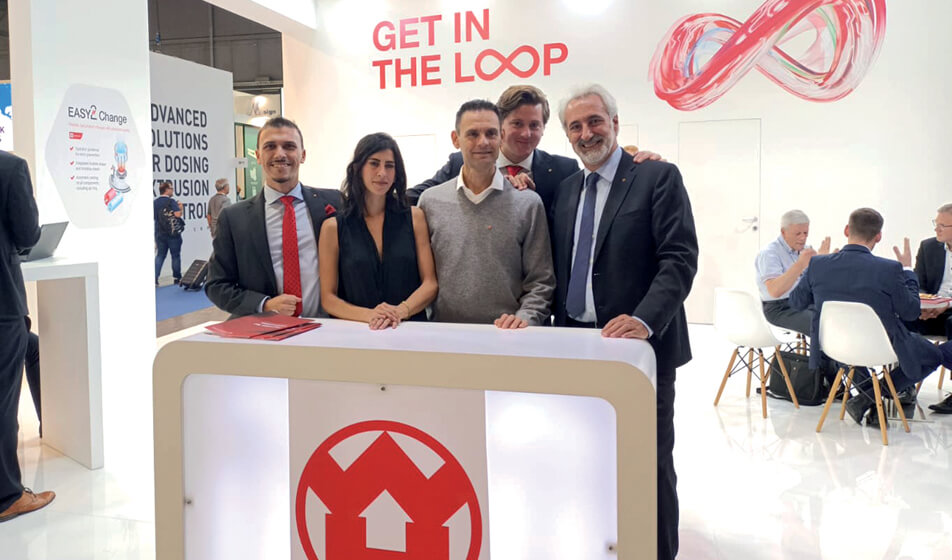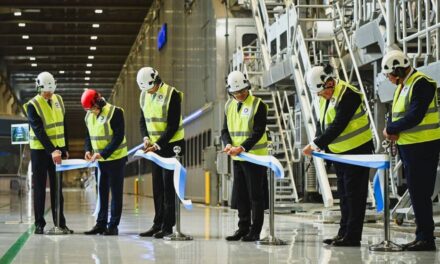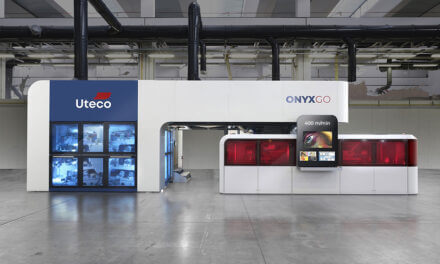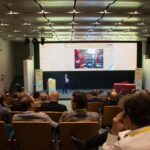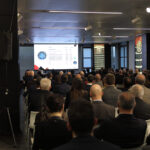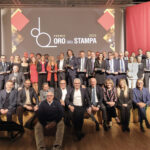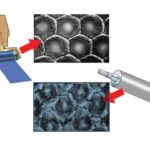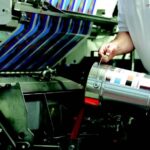Claudio Rivolta is the new Windmöller & Hölscher Customer Service manager in Italy. Who is the super technician who complements the staff of the national subsidiary and how he supports the German giant’s printing, extrusion and converting machines users.
Claudio Rivolta is very satisfied, indeed: happy. Since this summer, he has returned to work in “his” world of printing and converting, as Customer Service Manager at Windmöller & Hölscher Italiana, which thus strengthens its team with a central figure. If, in fact, the German manufacturer deploys a customer service of proverbial efficiency, managed by the headquarters and operating worldwide, with the arrival of Rivolta the proximity to the Italian customer becomes much closer. Both for his advanced skills on all the technologies in the field and for his role as linguistic and cultural ‘mediator’, which greatly facilitates work in all the pre- and post-sales phases.
Daniele Cerizzi, Managing Director of the Italian subsidiary, is in turn delighted with the new ‘acquisition’, who plays a central role and takes on an onerous work, till now shared among the other members of the Milanese staff who already follow sales, projects, installation plans, the arrival of equipment, spare parts…. Moreover, points out Cerizzi, “Rivolta became operational immediately, without the need for training because he already knew the job, the products, the converters. With the large number of machines sold in recent years, some of which still to be installed or started up, without Claudio it would have been very difficult. And the feed-back was very positive right from the start”.
All-round training
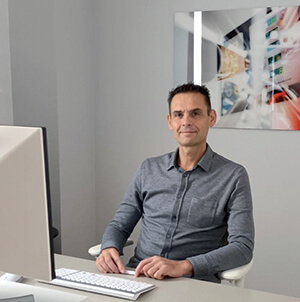 The professional growth of a manager with this kind of job is both broad and deep. “My professional history“, says Rivolta, “is linear. After finishing my studies, at the age of just over 20 I went to work for Bielloni and Castello, the undisputed leader in printing, laminating and extrusion machinery, where among other things I met Daniele Cerizzi. I stayed there for a good 26 years, first travelling the world as a service and installation technician, and then as service manager on all Bielloni product lines as well as, since the acquisition, the Dolci cast extrusion plants, especially for stretch film. Then, in 2017 – after the group moved to Amut – I went to Cama: a dynamic international manufacturer of packaging machines and lines, where I had a great experience of managing large customers, which taught me a lot. But when I re-encountered Cerizzi and the possibility of returning to work in my field came up, it seemed like a stroke of luck: here I was back in my own world, in a world-leading company, with a role as a link between Italian users, technicians operating in the area, and corporate service. Called upon to follow projects, solve problems, bring technical and organisational creativity with Italian flexibility and the taste for precise work of us people from Brianza: my bread-and-butter.”
The professional growth of a manager with this kind of job is both broad and deep. “My professional history“, says Rivolta, “is linear. After finishing my studies, at the age of just over 20 I went to work for Bielloni and Castello, the undisputed leader in printing, laminating and extrusion machinery, where among other things I met Daniele Cerizzi. I stayed there for a good 26 years, first travelling the world as a service and installation technician, and then as service manager on all Bielloni product lines as well as, since the acquisition, the Dolci cast extrusion plants, especially for stretch film. Then, in 2017 – after the group moved to Amut – I went to Cama: a dynamic international manufacturer of packaging machines and lines, where I had a great experience of managing large customers, which taught me a lot. But when I re-encountered Cerizzi and the possibility of returning to work in my field came up, it seemed like a stroke of luck: here I was back in my own world, in a world-leading company, with a role as a link between Italian users, technicians operating in the area, and corporate service. Called upon to follow projects, solve problems, bring technical and organisational creativity with Italian flexibility and the taste for precise work of us people from Brianza: my bread-and-butter.”
A key role
The caseload of work that falls to the Customer Service Coordinator is not easy to draw up in advance. It varies from the supervision of the site where the system will be activated, to check that all the necessary conditions and infrastructure are in place, to the installation work, with the associated tests and certifications, to the management of the variety of problems that can occur during a job.
“Although knowing the machines is essential, and I always enjoy getting my hands on them, I basically coordinate the work done by others. First of all by the central service department, which operates with well-defined and well-written procedures, dedicated staff working in 2 shifts and responsible for each operational area, and respective deputies, who are always accessible. With this type of organisation, you just need to know the correct channels and contact is ensured. Then, of course, I manage the technicians working in the field in Italy, each with their own expertise: extruders, printing machines, paper converting machines. What more do I give? In me the Italian customer finds an interlocutor who is always available, even in times of emergency, who speaks the same language and has the same mentality as him. But it also means understanding the mental processes of our culture, and acting as a bridge with the German culture, or more simply conversing with workers and technicians who only speak Italian: in more structured companies, English is now practised by everyone, but in smaller ones it is often still not, and this can be a problem. And then, as we all know, doing problem solving ‘in presence’ is more effective than remotely.”
What’s happening in Italy
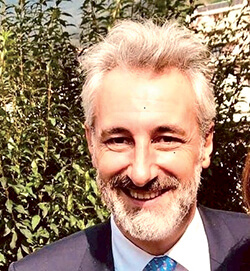 In the last three years W&H has sold more than 60 machines in Italy, adding to the hundreds already installed (some still in operation since the 70s). But now the market is slowing down, and it is not strange: inflation and reduction in families consumption, the rising cost of money, wars, and the previous rush to subsidized investments, which have partly saturated the market, are affecting all production sectors, packaging included, and projects remain in the drawer.
In the last three years W&H has sold more than 60 machines in Italy, adding to the hundreds already installed (some still in operation since the 70s). But now the market is slowing down, and it is not strange: inflation and reduction in families consumption, the rising cost of money, wars, and the previous rush to subsidized investments, which have partly saturated the market, are affecting all production sectors, packaging included, and projects remain in the drawer.
“With some differences“, Daniele Cerizzi points out, “between paper, which is more dynamic than plastic, and between different parts of the world, with Spain, which last year was at a standstill, now doing very well, or the USA – to give another example – where the economy is not so brilliant but everything is still turning. Slowdown”, Cerizzi warns, “does not mean stagnation. Environmental and economic demands are stimulating the reduction of substrates thicknesses, the emergence of new materials, the development of recyclable films and laminates, with immediate repercussions on the adaptation of machines and processes. From extrusion, where our blown systems have made the leap to new frontiers, to printing and converting, everything is involved and calls on converters to make the relevant technological adjustments.”

